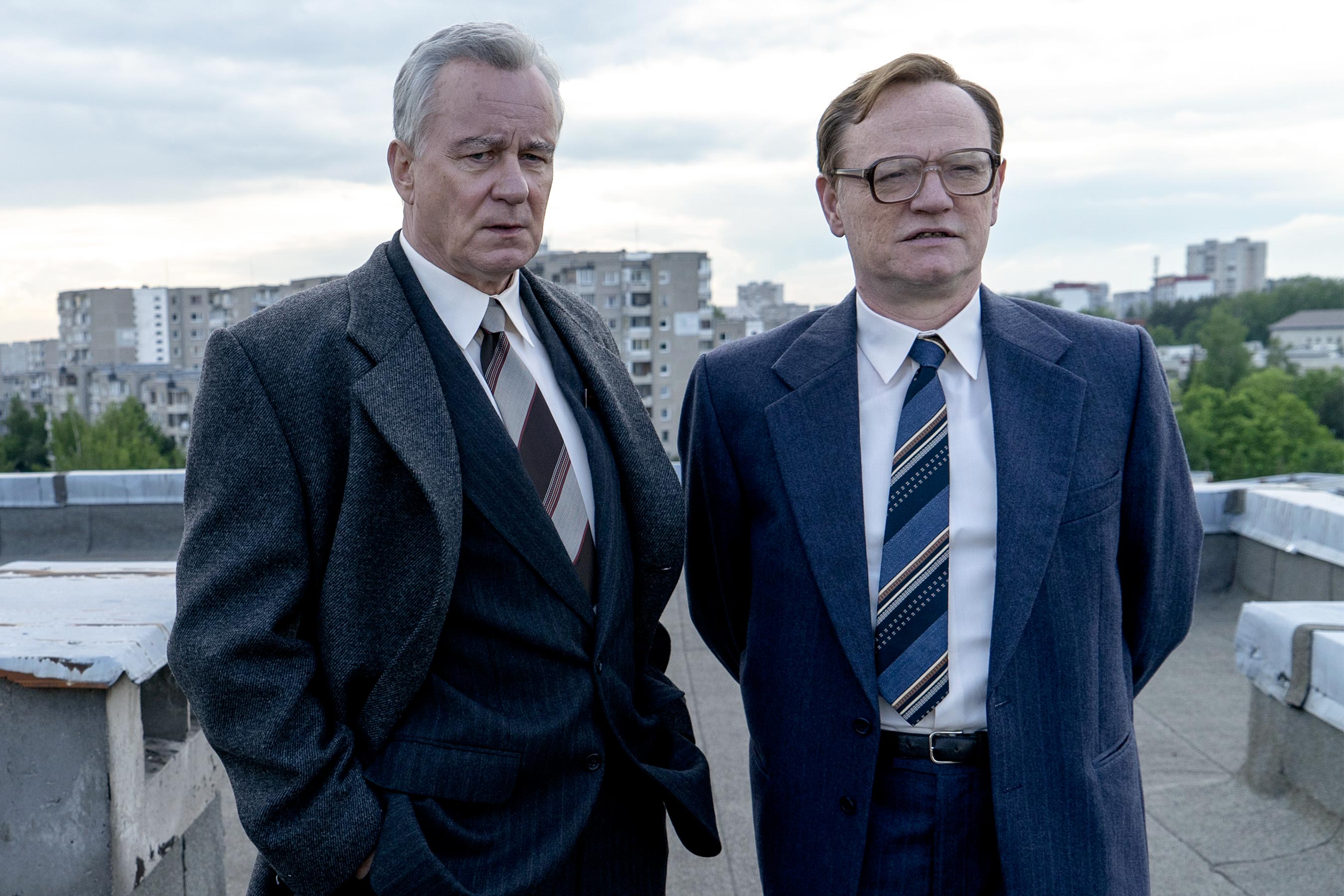Echoes of Flint in ‘Chernobyl’
The HBO miniseries may remind viewers of Trump’s ineptitude, but it should evoke a public health crisis that began under his predecessor. Stellan Skarsgård and Jared Harris star in "Chernobyl." (HBO)
Stellan Skarsgård and Jared Harris star in "Chernobyl." (HBO)
On May 30, toward the end of its five-week run on HBO, author Stephen King tweeted that the mini-series “Chernobyl” is impossible to watch without considering our feckless and incompetent president. “Like those in charge of the doomed Russian reactor,” King wrote, “[Donald Trump] is a man of mediocre intelligence in charge of great power—economic, global—that he does not understand.”
It’s impossible to watch HBO’s CHERNOBYL without thinking of Donald Trump; like those in charge of the doomed Russian reactor, he’s a man of mediocre intelligence in charge of great power–economic, global–that he does not understand.
— Stephen King (@StephenKing) May 30, 2019
As television critics have observed, “Chernobyl” all but invites comparisons between Soviet Russia and late-capitalist America. It’s easy to watch the show’s craven apparatchiks and be reminded of this administration’s egregious mishandling of Puerto Rico in the wake of Hurricane Maria. Still, the best analog for the Chernobyl nuclear disaster may be the years-long public health crisis that began on the watch of Trump’s predecessor.
“When the people of Flint, Michigan, complained that their tap water smelled bad and made children sick,” The Guardian’s Anna Clark wrote in July 2018, “it took officials 18 months to accept there was a problem.”
In 2014, Michigan state officials told Flint residents that although their water was disconcertingly odorous and discolored, tasted of copper and appeared to be giving people skin rashes, it was perfectly safe to drink. This insistence from government officials that there is no cause for alarm is echoed in “Chernobyl,” when, in the immediate aftermath of the meltdown, plant higher-ups and Soviet officials inform employees and the people of nearby Pripyat that its nuclear explosion is merely a fire. The town and its environs are eventually evacuated, but not before thousands are exposed to deadly radiation. At virtually every turn, the government’s efforts to contain what Zharkov (Donald Sumpter) calls “the spread of misinformation” end up exacerbating the crisis.
The similarities between these two incidents don’t end at institutional inaction, unfortunately. In Flint, as in Chernobyl, the state acknowledged that warning signs were ignored after the worst-case scenario had come to pass. And in both disasters, officials only took responsibility for their negligence after the knowledge of what had happened spread outside the affected regions.
Perhaps the most haunting parallel between the Chernobyl and Flint debacles, however, is that their true perpetrators have largely gone unpunished. While we learn in the show’s epilogue that a trio of Russian scientists were sentenced to 10 years of hard labor for their crimes, the Soviet bureaucracy that enabled them escapes indictment. And just this week, prosecutors dropped criminal charges against eight officials in the Flint water scandal, pledging to begin their investigation anew. It appears that one of the warnings of Chernobyl—that the powerful are rarely held accountable in a major disaster—has largely gone unheeded.
“Chernobyl” is not without its historical inaccuracies. “Resignation was the defining condition of Soviet life,” writes Russian-American journalist and author Masha Gessen in a recent essay for The New Yorker. “But resignation is a depressing and untelegenic spectacle. So the creators of ‘Chernobyl’ imagine confrontation where confrontation was unthinkable—and, in doing so, they cross the line from conjuring a fiction to creating a lie.”
Whatever its failings, “Chernobyl” is nonetheless a powerful cautionary tale about what happens when bureaucrats put public perception over the lives of the people they’re meant to serve. In their efforts to keep the truth from spreading—or to reshape it entirely—Soviet officials revealed the lengths to which they’d go to protect themselves. But as the series reminds us, and as the Flint crisis illustrated before it, “The truth doesn’t care about our needs or wants. It doesn’t care about our governments” or “their ideologies.”
Your support matters…Independent journalism is under threat and overshadowed by heavily funded mainstream media.
You can help level the playing field. Become a member.
Your tax-deductible contribution keeps us digging beneath the headlines to give you thought-provoking, investigative reporting and analysis that unearths what's really happening- without compromise.
Give today to support our courageous, independent journalists.









You need to be a supporter to comment.
There are currently no responses to this article.
Be the first to respond.